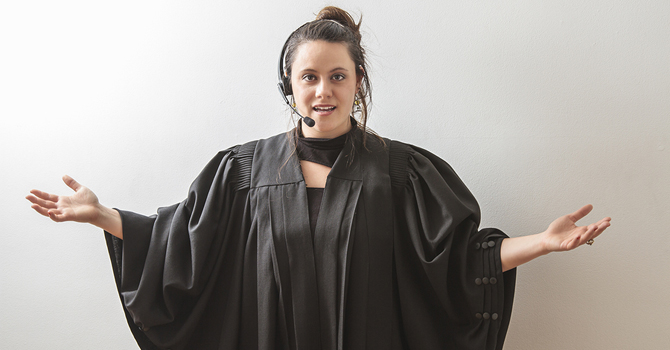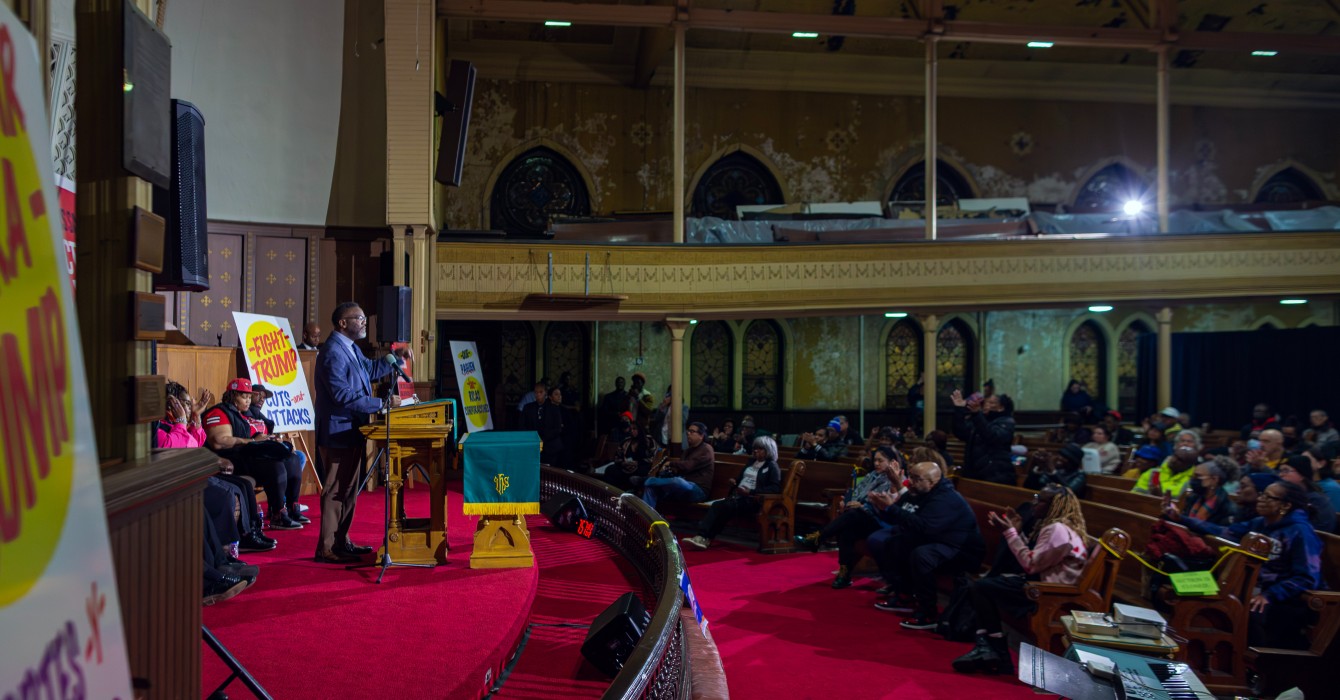Recently, a male colleague explained my sermon to me. I assume that he had done the same amount of work and was as qualified to preach as I am. Yet he provided an unsolicited critique of my interpretation of Scripture. I was wrong, he said, because my sermon didn’t end up in the same place his did.
A few weeks later, I was in a conversation with a different male colleague. This progressive leader politely asked me about my church but then turned to face another male colleague when he shifted the conversation, saying, “And now I have an academic question.” Even though I knew just as much about the subject in question, the conversation between the men went on without me.
Most women have had such encounters -- with men who have no authority on a matter yet feel empowered to explain to them what they already know, or who assume that they have nothing to offer in a conversation. But this is a staple of female clergy life, in a profession dominated by both words and men.
When I told a friend these stories, he came up with the idea of 10 commandments for male clergy. When I sent out a call to a Facebook group composed of young clergywomen serving primarily in white Protestant churches, I was surprised to discover how many of their submissions were similar.
The bodily focus of the comments caught my attention. There were many instances in which male colleagues subjected female pastors’ bodies to scrutiny, particularly related to childbearing.
In response, I share these crowdsourced commandments for male clergy:
Thou shalt never ask my due date when I haven’t informed you that I am pregnant.
Thou shalt not joke about my having “lost a lot of weight” since you last saw me -- even if I’ve had a baby.
Thou shalt not refer winkingly to my taking off my robe after worship as “disrobing.”
In her recent lecture-essay “Women in Power: From Medusa to Merkel,” Mary Beard describes the pervasiveness of the cultural stereotype that power -- from the halls of ancient Greece to the modern parliament -- is masculine.
She cites a January 2017 article in The London Times about women front-runners for the positions of bishop of London, commissioner of the Metropolitan Police and chair of the BBC governing board. The headline read: “Women prepare for a power grab in church, police and BBC.”
Beard points out that “probably thousands upon thousands of readers didn’t bat an eyelid” at the suggestion that those seats of power were the property of men -- possessions being “grabbed,” that is, taken away, by women.
“If we want to give women as a gender -- and not just in the shape of a few determined individuals -- their place on the inside of the structures of power,” Beard argues, “we have to think harder about how and why we think as we do.”
Comments about a female pastor’s body serve to highlight the differences between male and female clergy in a way that positions women as interlopers to church power, reinforcing that female bodies are out of place in church leadership, an ecclesial space that has been gendered as male for centuries.
As Beard reminds us, “We have no template for what a powerful woman looks like, except that she looks rather like a man.”
Drawing attention to pregnancy, making sexualizing comments about “disrobing,” suggesting that a clergywoman should smile more, describing a female pastor’s voice as “shrill” -- all expose the discomfort that men feel about women in “their” profession.
Masculine assumptions about gender were evident in the young clergywomen’s proposed commandments:
Thou shalt invite me into budget and financial conversations instead of assuming I won’t be interested.
Thou shalt not ask or expect me to take notes in a meeting, make copies or serve coffee.
Thou shalt not assume, based on my sex, that I’m better at working with children, youth or women than you are.
Thou shalt not call me “Sweetie,” “Kiddo” or “Girl.”
More than just ridiculous humiliations, these stereotypes affect the ministries and careers of women in church leadership. One colleague discovered that a pastor search committee was told that for the salary they were offering, they should expect only women to be willing to serve. The committee was livid -- not at the pay gap but at the idea that they would have to consider only women.
And as offensive as it is to be the target of outright sexists, it’s equally vexing to endure the behavior of male colleagues who purport to be feminists.
Women clergy offered the following commandments:
Thou shalt not doubt me when I say something is sexist.
Thou shalt not use “I’m a feminist” as a shield for your mansplaining or gentle misogyny.
Thou shalt believe women when they say things.
Men have all-male theological traditions and ministerial roles to which they can retreat. Not so female pastors.
If a woman stands up to this patriarchal tradition, she faces the accusation of intolerance. Women should not be expected to “get along” with sexist individuals, theologies, practices and institutions as if this were a price to be paid for church unity.
What is the way forward? For one, men must do better. When male pastors co-opt ideas that have come from female colleagues, they must reassign the insights. When they learn of pay gaps, they must address them.
When female clergy are outtalked or overtalked, male pastors must name the imbalance. They must read the sermons, theology and books of women. And decline to purchase books written by men who exclude women from the pulpit.
Women are addressing this as we always have: through constant negotiation between getting the job done and speaking out against what is intolerable. In the meantime, we create spaces where women can begin to speak the truth of our power to one another. For now, this is what we have.








